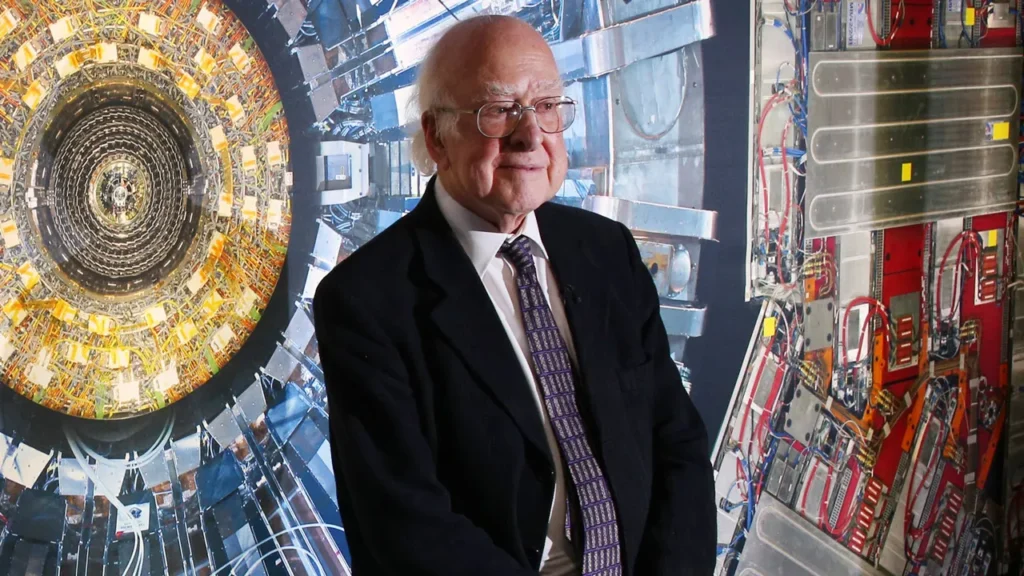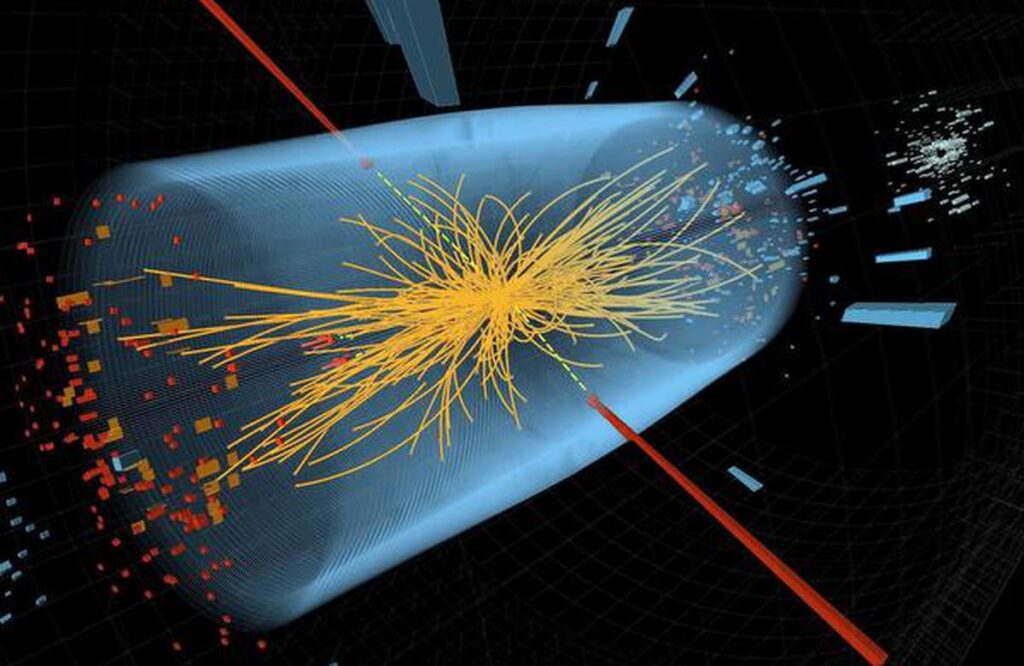“At the age of 94, British physicist Peter Higgs, winner of the Nobel Prize and well-known for the Higgs boson theory, passed away. He transformed particle physics with his work.”

British physicist Peter Higgs, who was awarded a Nobel Prize in Physics for his theory on the existence of the Higgs boson particle, popularly known as “God’s particle,” passed away on Tuesday at the age of 94.
The Scottish university said, “He peacefully departed at his residence on Monday, April 8, after a brief illness.” Higgs has worked at the same university for almost fifty years as a professor.
He was called “an exceptional educator and guide, inspiring numerous young scientists” by the university in the statement.
The university went on, “His family has requested privacy during this time, and we ask the media and public to respect their wishes.”
Everything About the Discovery of God Particles

Higgs clarified the idea of mass in the universe by employing novel theoretical ideas. He tackled one of the biggest mysteries in physics. Due to this success, he now shares a place in the canon of scientific literature with notables like Max Planck and Albert Einstein.
His 1964 theory of a mass-imparting particle—famously called the “God particle” or Higgs boson—led to his joint 2013 Nobel Prize in Physics award with Belgian physicist Francois Englert.
Over forty years of searching led to the discovery of God’s particle. On July 4, 2012, it was found during experiments on the Large Hadron Collider (LHC) at the European Organization for Nuclear Research (CERN) close to Geneva, Switzerland.
The Higgs boson is regarded as one of the most significant scientific discoveries of the modern era because it supports the Standard Model of Physics, which explains how different particles make up the universe.
What is the purpose of the Higgs boson?

The Higgs boson is a particle that is supposed to explain the mass of all other fundamental particles, which makes it extremely significant. Through the efforts of multiple physicists, it was discovered in the 1950s and 1960s that mass is not an intrinsic property of matter. Particles such as protons and electrons, despite their apparent similarity, lack mass. Similar to how there is an electric field, magnetic field, or gravitational field, Higgs and these other scientists proposed the concept of an all-pervasive field, which they called the Higgs field.
The particles acquire their mass through their interactions with this field. Greater mass results from greater interaction. Particles vary in their masses because of the ways in which they interact with this Higgs field. Since a photon, a light particle, has no interaction with this field, it has no mass. There are additional particles that lack mass. However, particles with masses and the ability to interact are protons and electrons. Because of its interactions with this field, the Higgs boson itself has mass.
Since the notions of the Higgs field and Higgs particle are not very intuitive, they are essential to our current comprehension of how nature functions. The Higgs boson gained most of its notoriety due to its elusiveness. For over forty years, scientists looked for it desperately but were unable to find it. The discovery of the Higgs boson was one of the primary scientific goals of the Large Hadron Collider (LHC), the largest particle accelerator in the world that was built for approximately US$9 billion. It did in the first four years of its existence, and that continues to be one of its greatest achievements.
🌌✨ The brilliant mind behind the 'God particle,' Nobel laureate Peter Higgs, has passed away at 94.
— Moneycontrol (@moneycontrolcom) April 10, 2024
Here's a look at how he was remembered for his contribution to science⏬https://t.co/jzZGq3IpTc#GodParticle #PeterHiggs #HiggsBoson #Science
ALSO READ:
Eid Mubarak 2024: Delhi’s Jama Masjid Is One Of These 7 Beautiful Mosques In The World
Solar Eclipse In April 2024: Record With Your Smartphone With These Expert Tips
India Launches Ather Rizta Electric Scooter, Costing Rs. 1.10 Lakh
Introducing Toyota’s Taisor SUV: Turbo, E-CNG, Premium Design